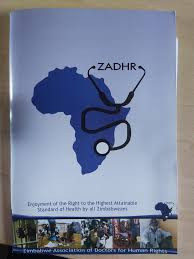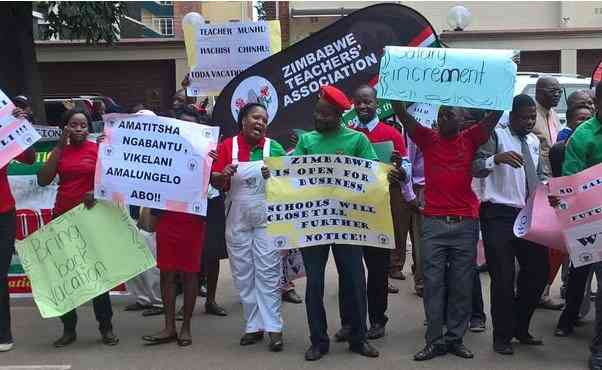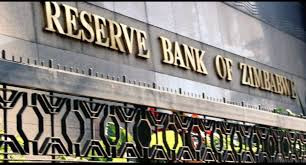BY FARAI MATIASHE
THE Zimbabwe Heads of Christian Denominations (ZHOCD) have called for a suspension of elections for seven years to pave way for political and economic reforms under a new structure which will come from the people.
Speaking at a media briefing in Harare yesterday, ZHOCD executive secretary Kenneth Mtata said national unity was paramount to address the current political paralysis, deepening mistrust and the dehumanising economic decline.
“It is in this light that the church leaders are proposing a national seven-year Sabbath period for the purposes of establishing an emergency recovery mechanism to address the dire national situation, especially for the most vulnerable communities, rebuilding trust and confidence by healing all the hurts of the past, developing a shared national reform agenda to deepen our democracy and establishing a shared and inclusive national economic vision,” he said.
“The Sabbath proposal entails the suspension of the constitutional provision of elections, but such a deficiency will be redressed through a national referendum. The national referendum question would seek to ascertain from all Zimbabweans whether they agree with a proposal for a seven-year suspension of all political contestation for the sake of rebuilding trust and confidence by healing to all hurts of the past, sharing and executing a shared constitutional and political national reform agenda, and establishing and implementing a shared national economic vision.”
Mtata said the church leaders were not proposing any detailed government structure for the seven-year period, but such an implementation must emerge from a process of consultation of citizens at different layers of society.
Keep Reading
- Chamisa under fire over US$120K donation
- Mavhunga puts DeMbare into Chibuku quarterfinals
- Pension funds bet on Cabora Bassa oilfields
- Councils defy govt fire tender directive
“Through this Sabbath call, the church leaders are soliciting for national acceptance of the seven-year Sabbath period as a season for trust and confidence building, resetting of national politics and creating an appropriate environment for economic recovery outside party political competition,” he said.
“The assumption is that once the principle receives national acceptance through a referendum, a consultative process to design the operationalisation framework of the Sabbath season will be established through a broad-based and comprehensive national dialogue involving all levels of society.”
Mtata accused toxic political relations for rendering Zimbabwe’s efforts to international re-engagement process futile, of which international isolation inhibits investor confidence and slows down economic growth.
Zimbabwe Catholic Bishops Conference (ZCBC) secretary-general Frederick Chiromba earlier revealed that they had engaged MDC leader Nelson Chamisa and handed over their proposal and also met Zanu PF leader President Emmerson Mnangagwa at his Munhumutapa offices and gave him the same proposal.
In mid-September ZHOCD, which is made up of the Evangelical Fellowship of Zimbabwe, Zimbabwe Council of Churches, UDACIZA and ZCBC, said they had lost confidence in the economic policies that were causing the suffering of ordinary citizens.
Mnangagwa was declared the winner of the 2018 harmonised elections by the Zimbabwe Electoral Commission and his victory was confirmed by the Constitutional Court following a court challenge by his rival Chamisa.
The main opposition party leader has accused the Zanu PF leader of working with the electoral body to manipulate votes in his favour.
In the wake of glaring human rights abuses, international isolation and poor economic policies, the country’s economy has nose-dived as prices of basic commodities keep going up, amid incessant power cuts and water shortages in a country experiencing scarcity of drugs in hospitals.
Mnangagwa early this year called for a national dialogue with political parties that participated in the 2018 elections, but Chamisa has snubbed the dialogue calling it biased and non-inclusive.





